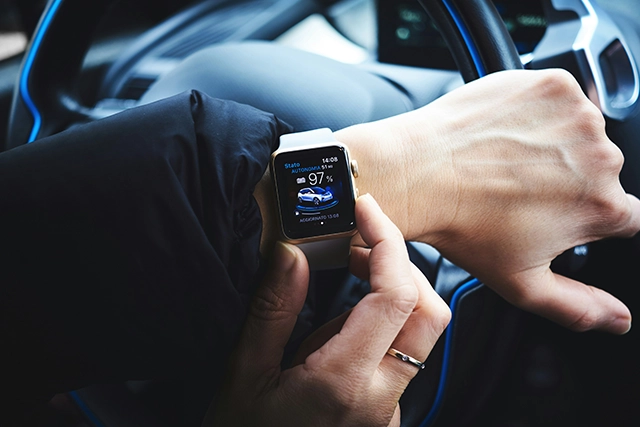Connected car data: Do you have the right to repair your car?
Posted: December 6, 2023
Who has the “right to repair” electronic goods? Many manufacturers prefer their products to be serviced only by themselves or approved third parties. But right-to-repair advocates believe consumers should be free to choose who fixes their property.
The best-known right-to-repair battles are about computers and mobile devices. But a long-standing debate has re-opened over cars, which increasingly collect and communicate vast amounts of data that is usually kept under lock and key.
So, should third-party mechanics – or even drivers themselves – be allowed to tinker around in their connected cars? Or are the risks too high, given the complex nature of modern automotive software?
From mechanics to diagnostics to telematics
Throughout most of the previous century, car mechanics did not need to know much about computers.
But in the 1980s, manufacturers started fitting cars with on-board diagnostics (OBD) systems that gathered data from the car’s various sensors to help repairers diagnose mechanical problems.
In 1996, responding to concerns that smaller repair shops could not reliably interpret different cars’ diagnostic data, a US standard known as “OBD-II” brought uniformity to OBD systems so mechanics could fix vehicles regardless of who manufactured them.
More recently, cars have come with telematics systems, which send a broad range of data back to the manufacturer. Telematics systems can communicate anything from GPS coordinates to fuel usage data—or even metrics about how often a person uses their seatbelt.
The challenges of telematics
Telematics systems are complex, non-standardized, and often locked down by the car’s manufacturer. Such hurdles can prevent unauthorized mechanics from accessing the data they need.
Thanks to standardization, interpreting OBD systems can be relatively straightforward. But with telematics, mechanics might need to understand the software installed by scores of different car manufacturers.
And that’s if the mechanic can even access telematics data. Telematics software is the intellectual property of its owner or licensee, and many manufacturers employ digital locks and encryption to prevent third parties from reading its outputs.
When mechanics and drivers first raised concerns about losing access to diagnostic systems, some jurisdictions began to legislate. For example, a 2012 Massachusetts law required manufacturers to ensure independent repair shops could access certain data.
But telematics systems fall outside of the scope of many such laws, meaning smaller car repair companies can struggle to serve millions of potential customers.
Massachusetts vs. US Department of Transport
In 2020, Massachusetts asked residents whether they supported a new law that would require vehicle manufacturers to implement a standardized open-data platform so that independent repair shops could access telematics data.
Almost 75% of voters said “yes”, and Massachusetts passed the Data Access Law requiring manufacturers to allow third-party, remote access to telematics data.
But the state’s efforts were hindered—first by an automotive industry lawsuit and then by the US National Highway Traffic Safety Administration (NHTSA), which wrote to car manufacturers in June stating that they should disregard Massachusetts’ new rules.
“Vehicle manufacturers appear to recognize that vehicles with the open remote access telematics required by the Data Access Law would contain a safety defect,” said NHTSA, which operates under the US Department of Transport.
“Federal law does not allow a manufacturer to sell vehicles that it knows contain a safety defect.”
But the Massachusetts Attorney General and the Department of Transport soon reached a compromise.
Manufacturers could meet the state’s requirements without violating federal law by communicating telematics data only via Bluetooth—rather than allowing remote access over the internet.
A new right to repair
Alongside Massachusetts’ Data Access Law, federal lawmakers have been debating various efforts to implement a nationwide automotive right-to-repair law.
Among such efforts is a federal bill, the Right to Equitable and Professional Auto Industry Repair Act (REPAIR Act) (HR906).
If passed, the REPAIR Act would require the NHTSA to issue new standards that allow independent repair shops to access vehicle-generated data.
And across the Atlantic, the European Association of Automotive Suppliers (CLEPA), among other trade bodies and civil society groups, argues for a connected vehicle right-to-repair law in the EU.
While the automotive industry is resisting threats to car manufacturers’ intellectual property, calls for right-to-repair legislation are likely to continue – and could succeed if lawmakers can resolve concerns in areas such as security and innovation.

Download our ‘Smart cars, smarter consent’ research report
Explore insights on consumer perceptions of data privacy in connected vehicles with this new research report. Surveying over 600 consumers, we uncover concerns about data privacy, emphasizing anonymization and transparency.
We consider:
- Concerns of drivers with tech-enabled cars
- Steps that manufacturers can take to build customer trust and brand loyalty
- The types and extent of data that’s collected by smart cars
- The demand for greater transparency in regards to data practices

